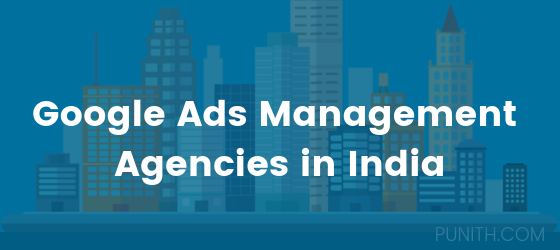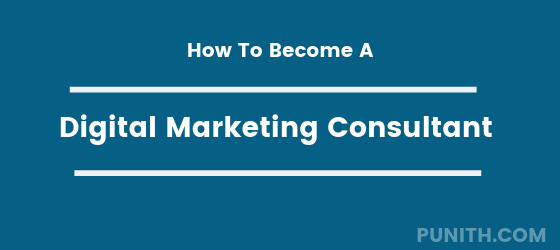As a business owner and prospective advertiser, buying print ads is easy. You write the copy and send it to the newspaper or magazine, and they do the rest. With internet advertising media buying, planning is a bit more difficult. Website advertising is littered with obscure abbreviations, and it can be difficult to know if what appears to be a low cost online advertising campaign is legitimate or not.
Types of ads
Before buying any website advertising space, or even worrying about online advertising costs, it is important to know what types of ads are available. Here is an overview, listed from those that generally incur the lowest online advertising costs, to those that command high online advertising rates.
- Text Ads can be as simple as a straightforward link from one page to another, or they can be specifically targeted ads that are served by advertising engines that mirror the content of their host sites. The basic text link is the original form of internet advertising, and it is still widely used, by large advertising networks and individuals alike.
- Image and Banner Ads are generally comprised by static images with text, and are most commonly displayed across the top of web pages. These are an older form of website advertising, and often used in free web space ads. They come in many standard sizes, including the most prevalent 480×60 pixel banner and the square button.
- Flash Ads are sort of hybrids of rich media advertising and banner ads. They can be entire animated movies, or just static images that float over an existing web page. (Flash itself is a software program that is produced by Adobe. These ads are usually created with Adobe Flash, hence the name.)
- Rich Media Ads are the most expensive and newest online advertising media. Buying, planning to buy, or even just thinking about them is best done with the assistance of a marketing firm. They can be as simple as an audio burst accompanying a banner, or as media-rich as an actual television commercial, or anything in between. They are excellent website advertising method for branding a new company or product. Like banner ads, these come in specific sizes (though with rich media bandwidth is the issue, more than the number of pixels), which have been standardized by the IAB (Interactive Advertising Bureau).
Once you understand the different ad types available for advertising media buying, planning your budget can begin. To devise a budget, you need to first understand how website advertising space is sold, and what goes into setting online advertising costs.
How rates are set
Rates for website advertising are set by combining many factors. While the type and size of your ad are part of that, there are several other components that go into online advertising costs.
- Site Traffic, which includes both the number of visitors a site receives and how long they typically stay on a page. High-traffic sites cost more to advertise on.
- Alexa ranks websites based on traffic and inbound links, with a lower number being more desirable – the better the ranking from Alexa, the more likely the site is to see traffic. Alexa’s rankings are based on an average from the previous three months.
- Page Rank which is Google’s ranking system, is based on inbound links, traffic, and search results, and is available for any page by downloading and installing a toolbar for your browser. Page rank, or PR, is a ten point scale with higher numbers being more desirable. Typically a higher-ranked page will come with a higher advertising cost online.
- Ad position refers to the physical location of the ad within the website advertising space. Typically online advertising rates decrease from top to bottom, and left to right. In other words, a banner ad across the top of a webpage is more expensive than a vertical ad on the upper left side, which is more expensive than a similar ad on the lower right side, etc.
- Ad type. Generally speaking, text link ads are the least expensive, with rich media content being quite costly, especially if it includes streaming media. In addition, there are costs specific to some campaigns, for example, PPC (pay per click) and CPM (cost per thousand) rate schemes sometimes also require the advertiser to bid on keywords.
- Site Where Ad is Hosted. The host page plays an important factor in determining online advertising rates. Some pages, or link farms, host nothing but free web space ads, and others are highly selective internet publications like online magazines, or news organizations, that charge premium prices for their website advertising space.
How to buy
It is a common expression in business that you have to spend money in order to make money. For this reason, you may want to earmark part of your advertising budget for hiring a media buying company, or internet marketing agency, both to help you find effective low cost advertising online, and to help you maximize the return on the money you spend.
Whether you contract with such a firm, or opt to represent yourself, the steps are the same. The difference is simply whether or not you do it all yourself. Here are some tips to make the process a bit easier.
- Devise a Budget. Sketch out an idea of the kind of ad you want, and how much you can afford to spend. If you already have a general advertising budget, you can simply allocate a portion of it for online advertising costs. If not, consider what you and your business can safely afford, and start small. One of the best features of website advertising is that it is scalable, with marketing solutions available for small companies and major corporations.
- Determine the Type of Ad you Want. Different types of ads work better for different objectives. Banners and rich media are excellent for building brand recognition. Text links, because they lend themselves so well to contextual targeting, work well for driving traffic to your site, and flash grabs viewers’ attention. In addition, new technologies, like click-to-call, are being offered all the time. Once you know your objective, you can look at specifics – sizes, shapes, and content.
- Approaching Related Websites Your advertising campaign will be most effective if you advertise on sites that are somehow related to your company, product or service. If you use a marketing firm, they will recommend sites for you; if not, you will have to research and approach them on your own. To open a dialogue, check the site for an advertising link, then email or call.
- Negotiating Rates. Make sure you understand what you are paying for. Are you paying per thousand impressions (CPM) or per click (PPC)? If you’re contracting with an ad network, will they provide tracking results, or will that be your responsibility? What about false clicks – will you be charged for them? These are all things you will need to negotiate and agree upon.
While it may seem that navigating the waters of website advertising is extremely difficult, there are three keys to simplifying the process of advertising media buying: planning, patience, and persistence.
So, whats your experience on buying ads from websites?




![All You Need To Know About AMP [Accelerated Mobile Pages]](https://www.punith.com/wp-content/uploads/2018/08/amp.jpg)
0 Comments